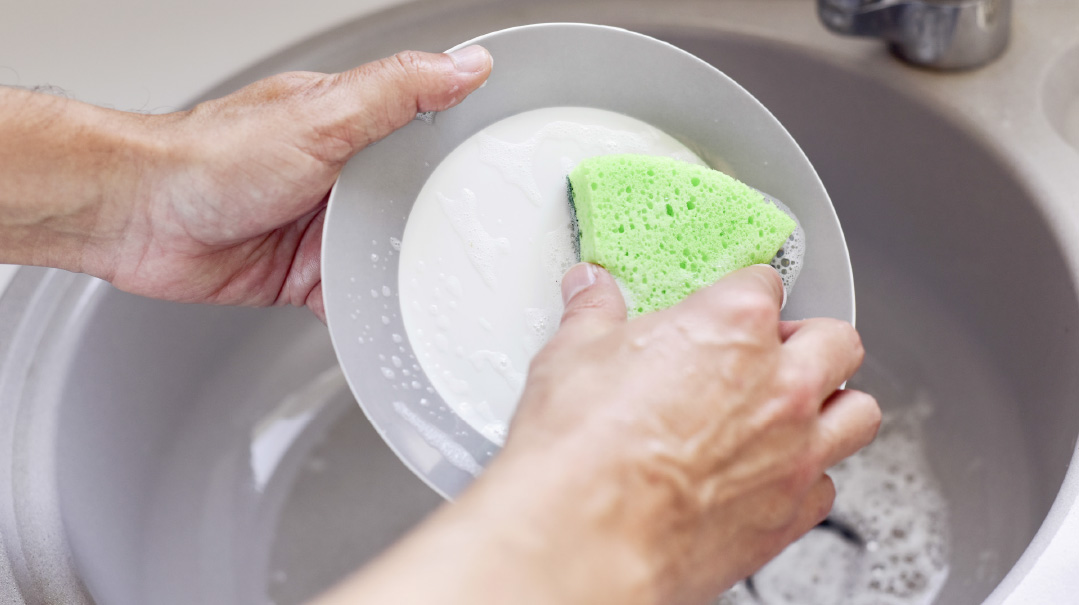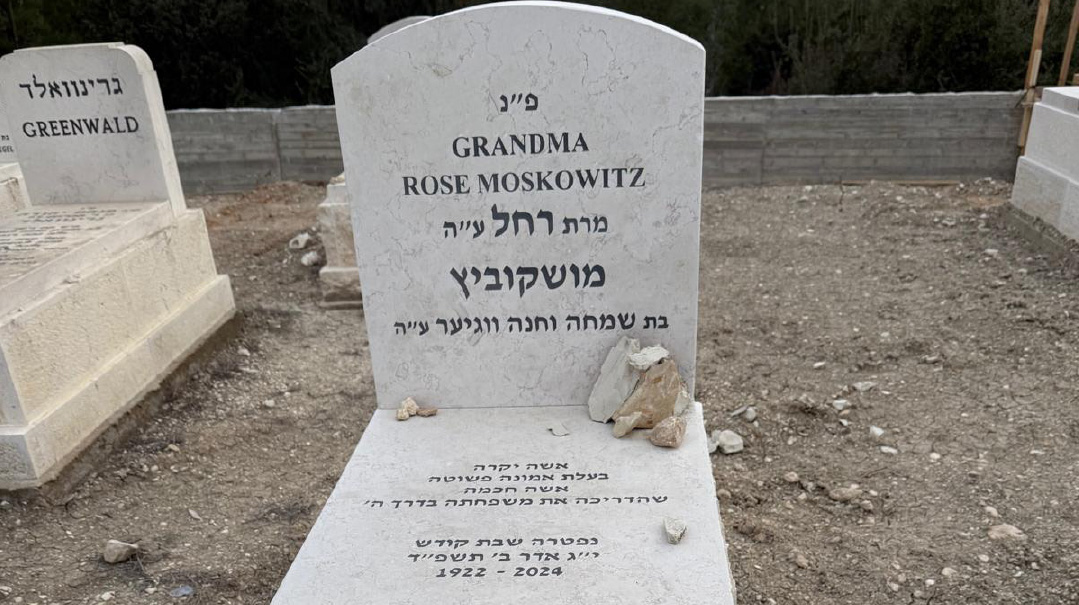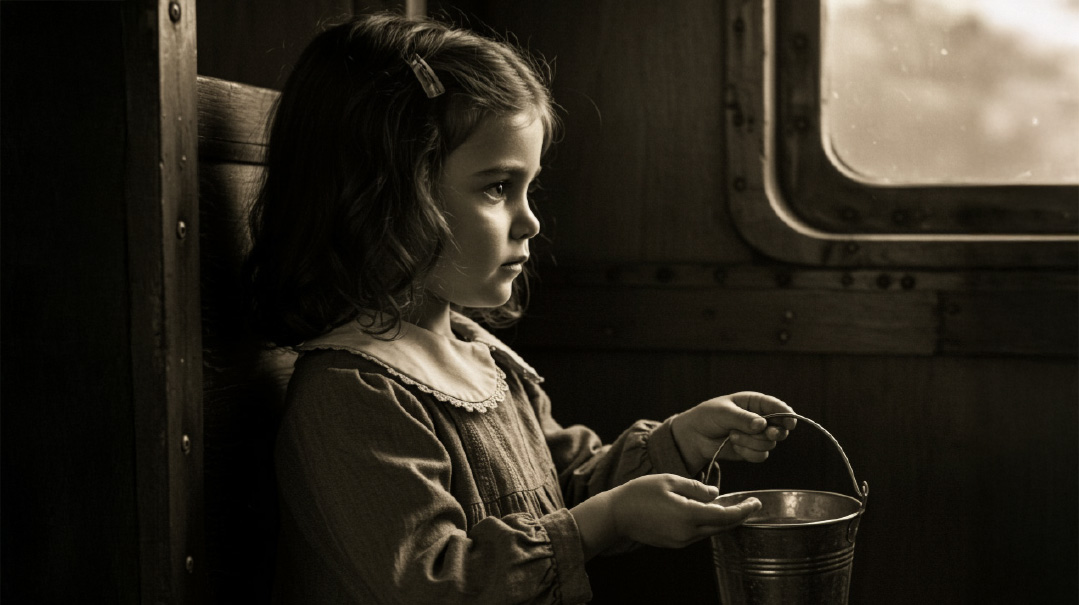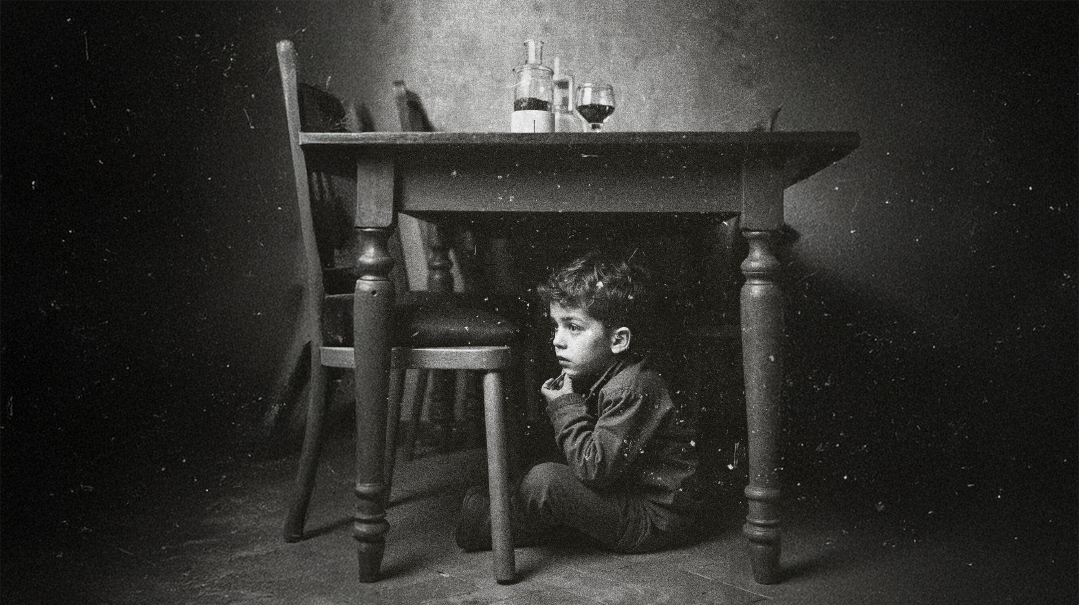Where Tatty Wears the Housecoat
| May 11, 2021Single fathers raising large families are not common. I am personally acquainted with only one other. Then again, we don’t advertise

Mazel tov! It is my seventh wedding anniversary. Of my second marriage. Seven years since I stopped being a single parent. Parent. I was not a single mother raising her children alone. I was a single father. It was a home where Tatty wore the housecoat.
Single fathers raising large families are not common. I am personally acquainted with only one other. Then again, we don’t advertise.
Lone fathers gain their position by the absence of a functioning mother. This means that even before death or divorce do them part, the father will already have been fulfilling both roles, frequently along with caring for a dysfunctional spouse. I paddled my own canoe for about 15 years, with only me and children in the canoe for the last eight. My children have very few fond memories of their mother in the traditional role, mostly restricted to their infancy.
Single parenting is challenging, but I managed quite easily considering the situation before I found myself on my own. Of course, friends, family, and particularly my rav were of tremendous assistance. It would have been difficult to manage without my support system.
By far the worst was girls’ clothes shopping. As every mother knows, it is impossible to find clothes for girls. From a male perspective, the atmosphere in the female section of any goyish clothing store is most unpleasant for a heimish man, while heimish ladies clothing outlets were quite amusing. When I walked in, all eyebrows would rise and conversation would die mid-sentence. The proprietors came running to give me priority service; they were genuinely sympathetic, but I did scare the customers away.
Oddly enough, I do not have an issue with the domestic side. Most bochurim pick up an adequate set of domestic skills in yeshivah and while dorming. I actually wrote a self-help guide to domestic life for my children. I can’t have my grandchildren complaining that I’m not a good “bubby,” so I baked hamantaschen for mishloach manos and sewed original Purim costumes every year.
My personal avodas Hashem had to undergo a radical change, because the Divine duty of raising Yiddishe kinderlach took priority. Regular chavrusas went out the window and unfortunately haven’t gotten back in yet. I still learn what I can where I can.
The financial burden is more difficult to dismiss. A nine-to-five job would be impossible unless you had a benevolent employer who let you take off indefinitely at short notice. I survived with a combination of part-time work, fairly flexible hours, a considerate employer, and government aid. The other single father I mentioned earlier is a sofer, so he can choose his own hours. Unlike single mothers, single fathers are unlikely to receive maintenance payments from their former partners. In divorce cases, the situation is further exacerbated by litigation costs.
When I started out on my own, the various kehillah organizations, particularly our local Agudah and Neshei, were invaluable in helping me obtain the basic necessities for setting up a home from scratch — everything from the roof down. The young children of one former kehillah member went collecting for me that first Purim on their own initiative. That money paid for several decent beds. I was very touched, and the Ribbono shel Olam must have been very proud of His children that day.
Emotionally, I found that the deeper involvement with my children brought about a drastic increase in my emotional sensitivity. I remain prone to tears in poignant circumstances. Happily, my patience has not suffered as a result.
At the end of the day, I am still a man, and would say that men cope better with my circumstances. Besides being physically stronger, a man is less likely to break down under the powerful emotions of lone parenthood — helplessness, loneliness, stress-induced irritation and so on. I am disturbed by the attitudes of certain people toward a single father with a living ex-spouse, viewing him as some sort of cruel monster taking children away from their mother. The estranged former wife will often encourage this mindset (understandable but unjustifiable). These ladies are a rachmanus but not for the reason they think they are. It should be pointed out that the dayanim and judges responsible for making the residence decision unfortunately have vast experience and cannot simply be bribed or fooled. Despite women being theoretically responsible for an equal number of marriage breakdowns, they still receive custody of the children in the vast majority of cases. It stands to reason, therefore, that when they do not, there is something very substantially wrong that not everyone may be aware of and the father in question has probably been having a hard time long before the actual separation.
Another comment out of place is remarriage. Second marriages are notoriously tricky, compounded by factors like age and dependent children, and I was blessed with both. With older singles in particular, they are probably long settled, independent, and reluctant to destabilize their lives. Children complicate it further. For myself, being nominally chassidish (look but don’t act it) was an additional hurdle. Most older single girls tend to be litvish and view any chassidic lifestyle as incompatible. I’m not criticizing; I fully appreciate the ramifications. I have heard of rare cases where young never-married girls took on a full household, and I think people should rise in their honor. There also seemed to be a shortage of suitable ladies my age in general (baruch Hashem, considering that older singles are not usually unmarried for happy reasons). I made every kind of hishtadlus above and beyond the call of duty and can only speculate as to the efforts of my rav on my behalf.
On the positive side, one of my daughters got back from a sleepover at a friend’s house and casually remarked how odd it had been to see a woman in the kitchen and running the house. Now that’s a compliment!
Inevitably, some of the single-parent legacy carries on into the second marriage. When looking for a shidduch, my main focus had been on mothering attributes. I was quite prepared to continue with the domestic duties. My very intelligent second wife explained that for a woman to feel integrated into a home she actually needs to perform these tasks. Even so, she very wisely only gradually assumed these duties to allow me to transition to a healthier level of dependency.
Hindsight?
A marriage that does not endure is not necessarily an unsuccessful marriage. The Baal Shem Tov writes that when a neshamah comes down to This World, other neshamos sometimes wish to join it, and some only relinquish their claim after having met or even married the particular neshamah, before which it cannot find its true zivug. Nonetheless, my wife still hasn’t quite forgiven me for marrying somebody else first.
I saw a tremendous amount of Hashgachah pratis throughout my first marriage, and especially since, continuing into my second marriage. The Hand of Hashem has been very obvious and I am not trying to be kliger vi G-t. It was meant to be this way, and I give due thanks. Gam zu l’tovah. —
(Originally featured in Mishpacha, Issue 860)
Oops! We could not locate your form.












